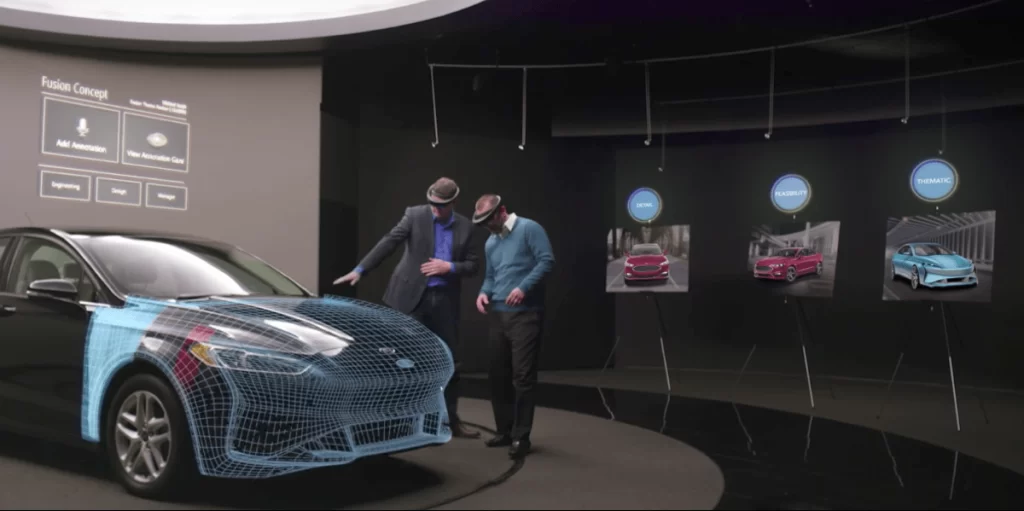The Role of Virtual Reality in Car Showrooms

Virtual reality plays an invaluable role in car showrooms. Customers can use it to try different colors, trims and options in real-time – giving them more insight and helping them make informed decisions.
VR technology can also be utilized for automotive engineering, training and production line management. Engineers use virtual reality simulation to test vehicle designs more easily while also decreasing physical prototypes and speeding up design iterations cycles.
Virtual test drives
Virtual car showrooms allow customers to experience the look, feel, and functionality of vehicles without the hassle of visiting a dealership. These digital showrooms are tailored for an interactive customer experience and equip buyers with all of the knowledge and confidence needed for purchasing decisions.
These virtual showrooms can be accessed via any computer or mobile device with internet connectivity and can be used to showcase new vehicles or provide in-depth walkarounds of current models. Some companies even allow customers to customize and test drive a virtual car – giving customers the chance to drive home their dream ride!
Virtual car showrooms provide an efficient and dynamic solution for today’s modern automotive landscape, offering flexibility, safety, personalised experience and increased engagement throughout the buying journey. Not only can virtual showrooms save time and reduce environmental impact by eliminating physical travel requirements for customers to explore multiple cars quickly before making decisions, they can also improve time efficiency by eliminating physical travel requirements for making quick purchasing decisions.
Virtual showrooms
Virtual showrooms can help car dealerships reach customers who may otherwise not visit a physical store. Indeed, during the Covid-19 pandemic virtual car showrooms saw an unprecedented surge in popularity as people explored vehicles without physically going anywhere.
These virtual showrooms allow users to examine cars from all angles and even peek underneath them, as well as receive personalized guidance through intelligent chatbots or virtual assistants – ideal for people new to car buying who need guidance through the process.
Virtual showrooms allow customers to test out car colors and options in an immersive experience, eliminating time-consuming dealership visits that can be both time-consuming and stressful for shoppers. Plus, without pushy salespeople trying to close deals quickly or pressure customers into buying, the customer can shop their own pace without feeling pressured into making an instantaneous decision.
Virtual pre-sales
Car dealerships with strong digital platforms can give their customers access to virtual showrooms in which to view vehicles before making purchasing decisions, making it easier for people who live far away or do not have easy access to make an informed decision on a model of car they wish to purchase.
Car dealerships aren’t the only industries taking advantage of VR in innovative ways. Travel companies use it to show prospective travelers what to expect on vacation; real estate developers use VR to show homebuyers new developments before construction begins; engineers use it to tour HVAC systems and see how they would look in industrial spaces; law enforcement officers train for specific situations using immersive simulations.
MG Motors utilized Virtual Reality (VR) technology to craft an emotive Christmas advertisement that shows how distance does not keep families apart. They also utilize it so customers can customize and personalize their MG Verse cars through an immersive platform.
Virtual training
Virtual training can assist car companies in raising employee awareness of new technologies. Furthermore, virtual reality experiences can show employees how they should respond in case of an accident or incident in a real showroom.
VR technology can bring people one step closer to the car of their dreams without needing to visit a showroom. Users can explore and try out various models from the comfort of their own homes – an improvement on traditional processes for purchasing a car.
Virtual Reality offers designers and engineers an effective tool for prototyping car designs, saving millions in prototype production costs. Law enforcement officers also find Virtual Reality useful, where it can train officers on how to respond in dangerous highway incidents or view natural disasters such as wildfires or flooding first-hand.

